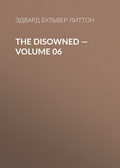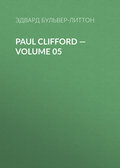
Эдвард Бульвер-Литтон
Tomlinsoniana
TEN CHARACTERS
I
The mild, irresolute, good-natured, and indolent man. These qualities are accompanied with good feelings, but no principles. The want of firmness evinces also the want of any peculiar or deeply rooted system of thought. A man conning a single and favourite subject of meditation grows wedded to one or the other of the opinions on which he revolves. A man universally irresolute has generally led a desultory life, and never given his attention long together to one thing. This is a man most easy to cheat, my beloved friends; you cheat him even with his eyes open. Indolence is dearer to him than all things; and if you get him alone and put a question to him point blank, he cannot answer, No.
II
The timid, suspicious, selfish, and cold man. Generally a character of this description is an excellent man of business, and would at first sight seem to baffle the most ingenious swindler. But you have one hope,—I have rarely found it deceive me,—this man is usually ostentatious. A cold, a fearful, yet a worldly person has ever an eye upon others; he notes the effect certain things produce on them; he is anxious to learn their opinions, that he may not transgress; he likes to know what the world say of him; nay, his timidity makes him anxious to repose his selfishness on their good report. Hence he grows ostentatious, likes that effect which is favourably talked of, and that show which wins consideration. At him on this point, my pupils!
III
The melancholy, retired, sensitive, intellectual character. A very good subject this for your knaveries, my young friends, though it requires great discrimination and delicacy. This character has a considerable portion of morbid suspicion and irritation belonging to it,—against these you must guard; at the same time its prevailing feature is a powerful but unacknowledged vanity. It is generally a good opinion of himself, and a feeling that he is not appreciated by others, that make a man reserved; he deems himself unfit for the world because of the delicacy of his temperament, and the want of a correspondent insensibility in those he sees! This is your handle to work on. He is peculiarly flattered, too, on the score of devotion and affection; he exacts in love, as from the world, too much. He is a Lara, whose females must be Medoras; and even his male friends should be extremely like Kaleds! Poor man! you see how easily he can be duped. Mem.—Among persons of this character are usually found those oddities, humours, and peculiarities which are each a handle. No man lives out of the world with impunity to the solidity of his own character. Every new outlet to the humour is a new inlet to the heart.
IV
The bold, generous, frank, and affectionate man,—usually a person of robust health. His constitution keeps him in spirits, and his spirits in courage and in benevolence. He is obviously not a hard character, my good young friends, for you to deceive; for he wants suspicion, and all his good qualities lay him open to you. But beware his anger when he finds you out! He is a terrible Othello when his nature is once stung. Mem.—A good sort of character to seduce into illegal practices; makes a tolerable traitor or a capital smuggler. You yourselves must never commit any illegal offence,—aren’t there cat’s-paws for the chestnuts? As all laws are oppressions (only necessary and often sacred oppressions, which you need not explain to him), and his character is especially hostile to oppression, you easily seduce the person we describe into braving the laws of his country. Yes! the bold, generous, frank, and affectionate man has only to be born in humble life to be sure of a halter!
V
The bold, selfish, close, grasping man will in all probability cheat you, my dear friends. For such a character makes the master-rogue, the stuff from which Nature forms a Richard the Third. You had better leave such a man quite alone. He is bad even to serve. He breaks up his tools when he has done with them. No, you can do nothing with him, my good young men!
VI
The eating, drinking, unthoughtful, sensual, mechanical man,—the ordinary animal. Such a creature has cunning, and is either cowardly or ferocious; seldom in these qualities he preserves a medium. He is not by any means easy to dupe. Nature defends her mental brutes by the thickness of their hide. Win his mistress if possible; she is the best person to manage him. Such creatures are the natural prey of artful women; their very stolidity covers all but sensuality. To the Samson-the Delilah.
VII
The gay, deceitful, shrewd, polished, able man,—the courtier, the man of the world. In public and stirring life this is the fit antagonist,—often the successful and conquering rival of Character V. You perceive a man like this varies so greatly in intellect—from the mere butterfly talent to the rarest genius, from the person you see at cards to the person you see in Cabinets, from the – to the Chesterfield, from the Chesterfield to the Pericles—that it is difficult to give you an exact notion of the weak points of a character so various. But while he dupes his equals and his superiors, I consider him, my attentive pupils, by no means a very difficult character for an inferior to dupe. And in this manner you must go about it. Do not attempt hypocrisy; he will see through it in an instant. Let him think you at once, and at first sight, a rogue. Be candid on that matter yourself; but let him think you a useful rogue. Serve him well and zealously; but own that you do so, because you consider your interest involved in this. This reasoning satisfies him; and as men of this character are usually generous, he will acknowledge its justice by throwing you plenty of sops, and stimulating you with bountiful cordials. Should he not content you herein, appear contented; and profit in betraying him (that is the best way to cheat him), not by his failings, but by opportunity. Watch not his character, but your time.
VIII
The vain, arrogant, brave, amorous, flashy character. This sort of character we formerly attributed to the French, and it is still more common to the Continent than that beloved island which I shall see no more! A creature of this description is made up of many false virtues; above others, it is always profuse where its selfishness is appealed to, not otherwise. You must find, then, what pleases it, and pander to its tastes. So will ye cheat it,—or ye will cheat it also by affecting the false virtues which it admires itself,—rouge your sentiments highly, and let them strut with a buskined air; thirdly, my good young men, ye will cheat it by profuse flattery, and by calling it in especial “the mirror of chivalry.”
IX
The plain, sensible, honest man,—a favourable, but not elevated specimen of our race. This character, my beloved pupils, you may take in once, but never twice. Nor can you take in such a man as a stranger; he must be your friend or relation, or have known intimately some part of your family. A man of this character is always open, though in a moderate and calm degree, to the duties and ties of life. He will always do something to serve his friend, his brother, or the man whose father pulled his father out of the Serpentine. Affect with him no varnish; exert no artifice in attempting to obtain his assistance. Candidly state your wish for such or such a service, sensibly state your pretensions, modestly hint at your gratitude. So may you deceive him once, then leave him alone forever!
X
The fond, silly, credulous man, all impulse and no reflection,—how my heart swells when I contemplate this excellent character! What a Canaan for you does it present! I envy you launching into the world with the sanguine hope of finding all men such! Delightful enthusiasm of youth,—would that the hope could be realized! Here is the very incarnation of gullibility. You have only to make him love you, and no hedgehog ever sucked egg as you can suck him. Never be afraid of his indignation; go to him again and again; only throw yourself on his neck and weep. To gull him once is to gull him always; get his first shilling, and then calculate what you will do with the rest of his fortune. Never desert so good a man for new friends; that would be ungrateful in you! And take with you, by the way, my good young gentlemen, this concluding maxim: Men are like lands; you will get more by lavishing all your labour again and again upon the easy than by ploughing up new ground in the sterile! Legislators,—wise, good, pious men,—the Tom Thumbs of moral science, who make giants first, and then kill them,—you think the above lessons villanous. I honour your penetration. They are not proofs of my villiany, but of your folly! Look over them again, and you will see that they are designed to show that while ye are imprisoning, transporting, and hanging thousands every day, a man with a decent modicum of cunning might practise every one of those lessons which seem to you so heinous, and not one of your laws could touch him!







